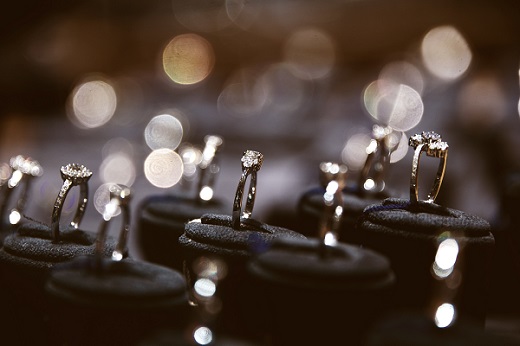Synthetics Not 'Real,' Say US Consumers
 RAPAPORT... Some 68% of Americans don't consider synthetics to be realdiamonds, with most citing the fact that they don't come from the earth, a Diamond ProducersAssociation (DPA) poll showed. Another 16% of those surveyed said theyweren't sure if a diamond created in a factory was real, while the remaining16% believed they were real. The survey - conducted online by The Harris Poll - asked2,011 US adults about lab-grown diamonds to understand if consumers consideredthem authentic, what they thought a "real" diamond was, and whether they wereconfused about the differences between natural diamonds and those created in alaboratory. "Diamonds are billion-year-old treasures of the earth that came tous very, very slowly, which makes them uniquely meaningful in today's on-demandworld," said Jean-Marc Lieberherr, CEO of the DPA. "At a time when everything'artificial' aims to compete with, and replace, 'natural' and 'real,' theseresults show consumers care about the inherent value, authenticity andsymbolism that a diamond carries." The results are important to the industry because they confirmthat a diamond's "real" origin matter to consumers, Lieberherr said.Additionally, the findings prove that those who make and sell synthetics createconfusion in the marketplace by calling them "real," which goes against theDPA's terminology standards, he argued. The DPA also conducts a survey every six months of millennialswho have bought a diamond over the past two years, measuring consumersentiment toward synthetics. Millennials' views of synthetics have remained stable, according to the survey. However, the number of people who said they would buy lab-grown diamonds for a major event, such as a birthday, engagement or the birth of a child, has dropped since the last poll. The results of the two surveys, as well as the falling prices oflab-grown stones, show that US consumers understand the higher value of a "real"diamond, Lieberherr added. Image: Shutterstock
RAPAPORT... Some 68% of Americans don't consider synthetics to be realdiamonds, with most citing the fact that they don't come from the earth, a Diamond ProducersAssociation (DPA) poll showed. Another 16% of those surveyed said theyweren't sure if a diamond created in a factory was real, while the remaining16% believed they were real. The survey - conducted online by The Harris Poll - asked2,011 US adults about lab-grown diamonds to understand if consumers consideredthem authentic, what they thought a "real" diamond was, and whether they wereconfused about the differences between natural diamonds and those created in alaboratory. "Diamonds are billion-year-old treasures of the earth that came tous very, very slowly, which makes them uniquely meaningful in today's on-demandworld," said Jean-Marc Lieberherr, CEO of the DPA. "At a time when everything'artificial' aims to compete with, and replace, 'natural' and 'real,' theseresults show consumers care about the inherent value, authenticity andsymbolism that a diamond carries." The results are important to the industry because they confirmthat a diamond's "real" origin matter to consumers, Lieberherr said.Additionally, the findings prove that those who make and sell synthetics createconfusion in the marketplace by calling them "real," which goes against theDPA's terminology standards, he argued. The DPA also conducts a survey every six months of millennialswho have bought a diamond over the past two years, measuring consumersentiment toward synthetics. Millennials' views of synthetics have remained stable, according to the survey. However, the number of people who said they would buy lab-grown diamonds for a major event, such as a birthday, engagement or the birth of a child, has dropped since the last poll. The results of the two surveys, as well as the falling prices oflab-grown stones, show that US consumers understand the higher value of a "real"diamond, Lieberherr added. Image: Shutterstock